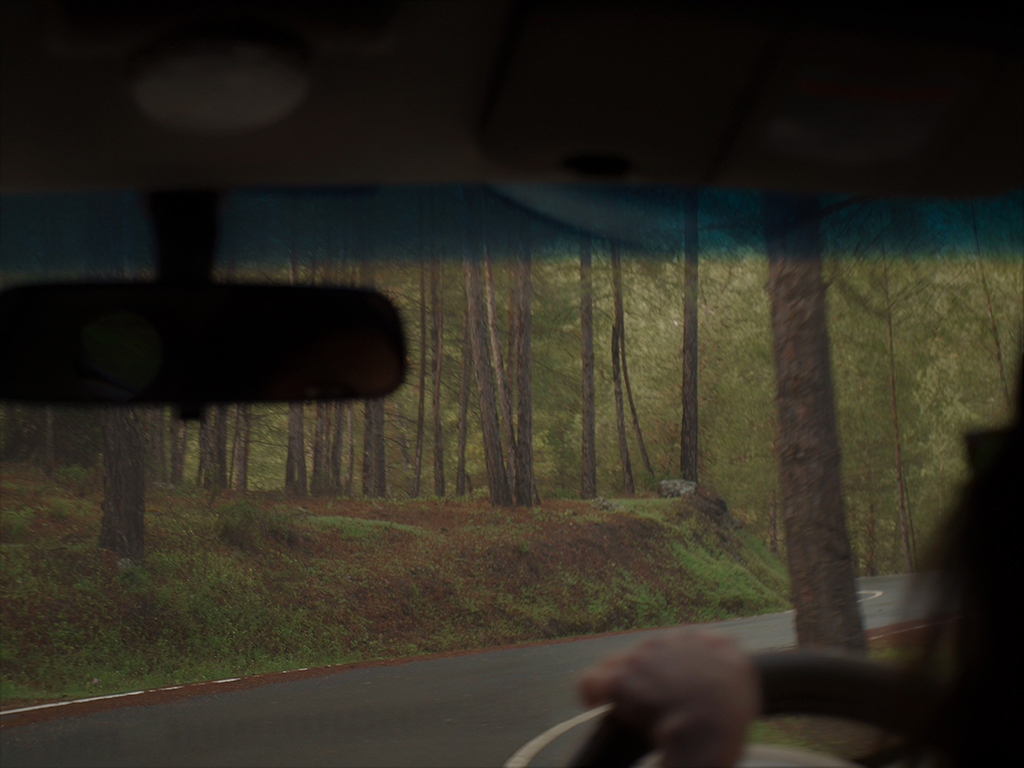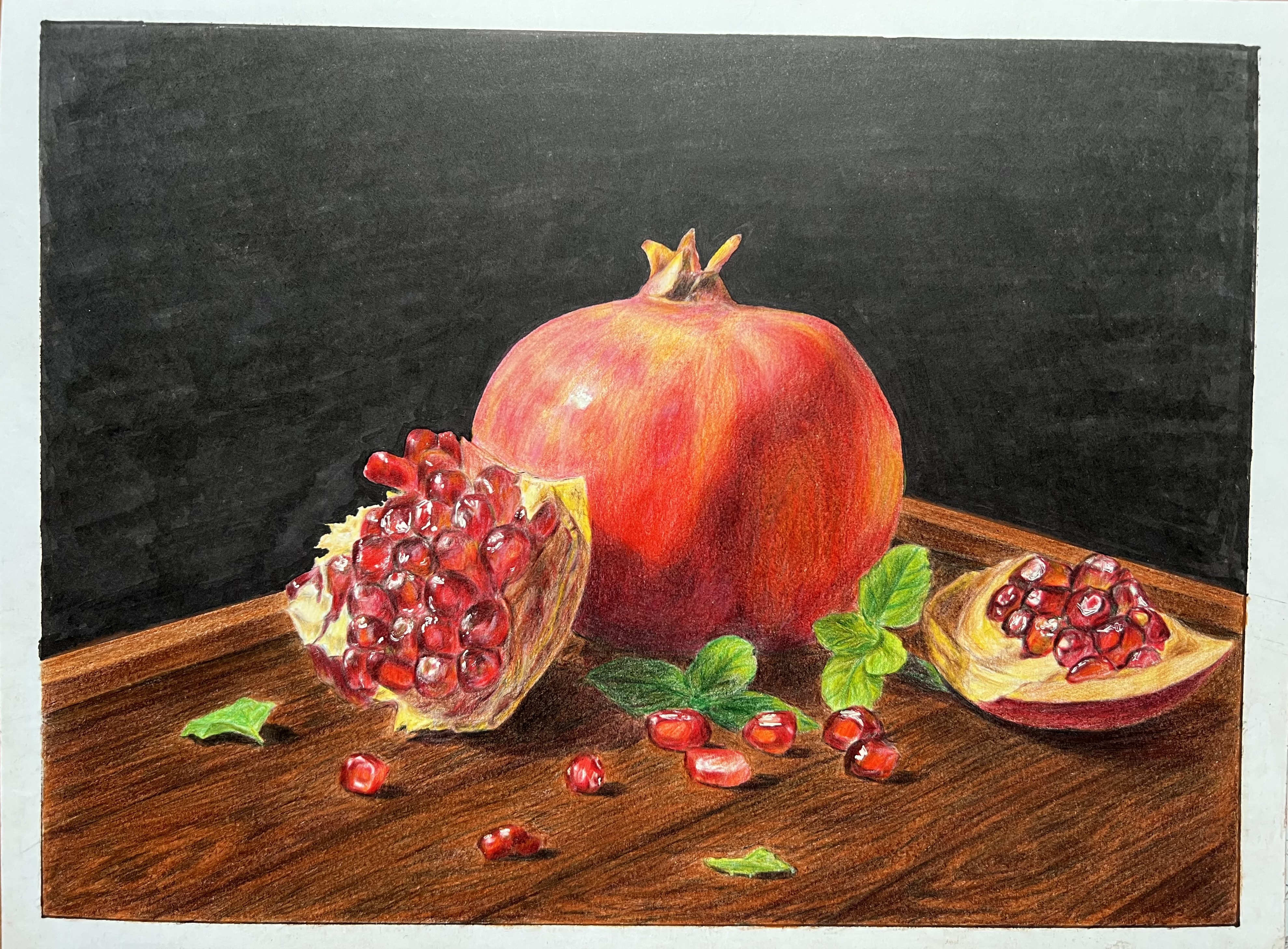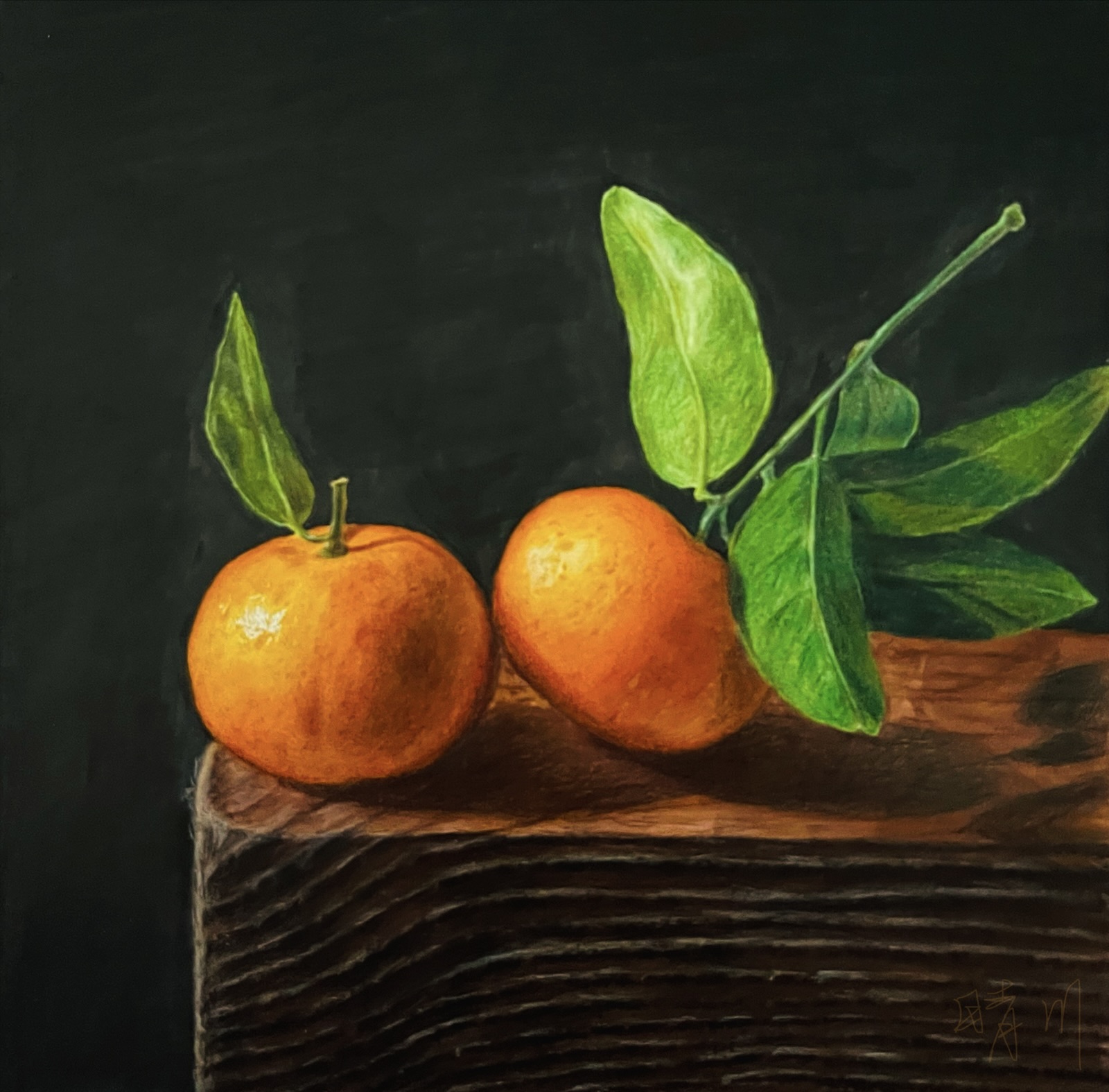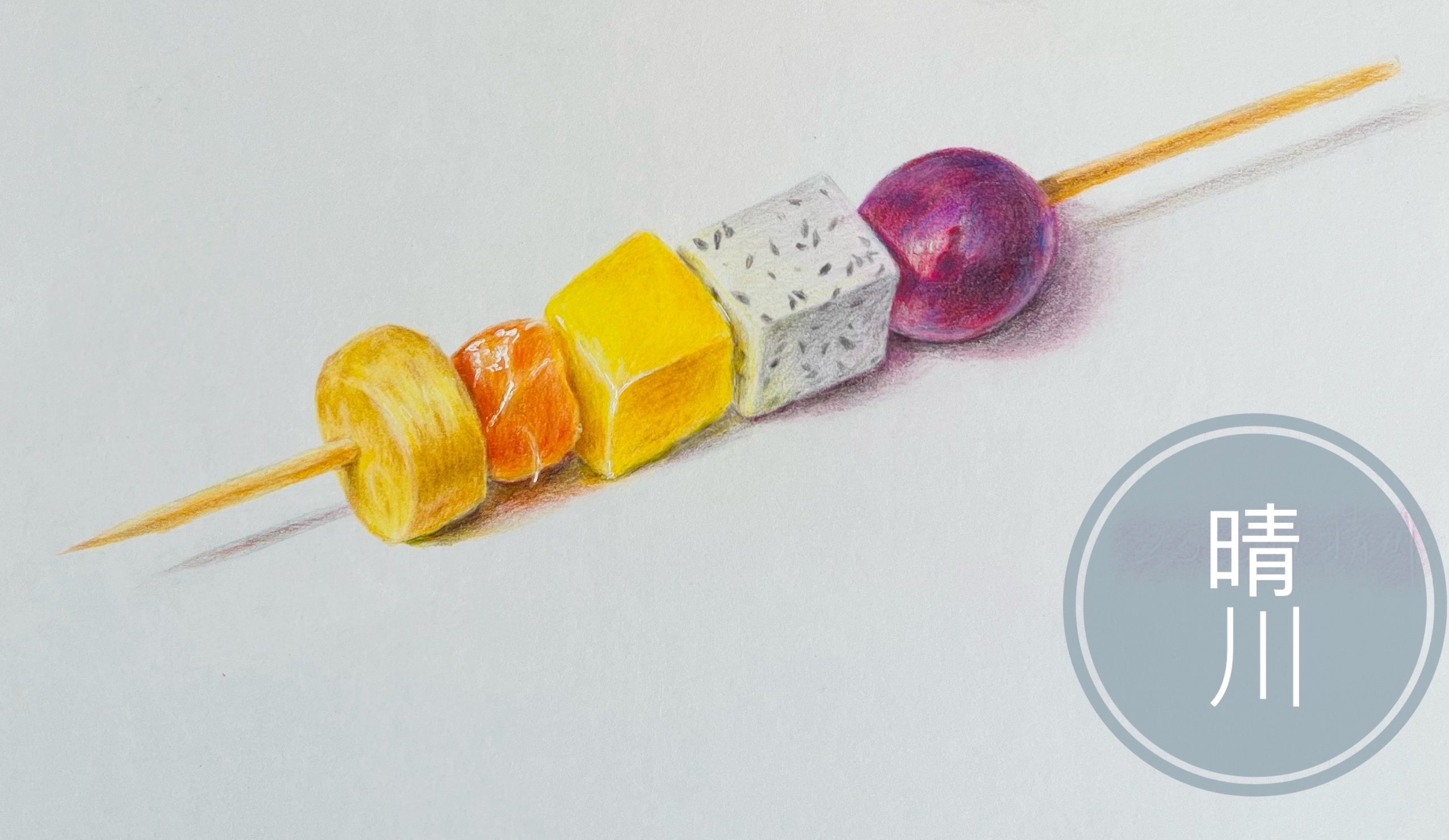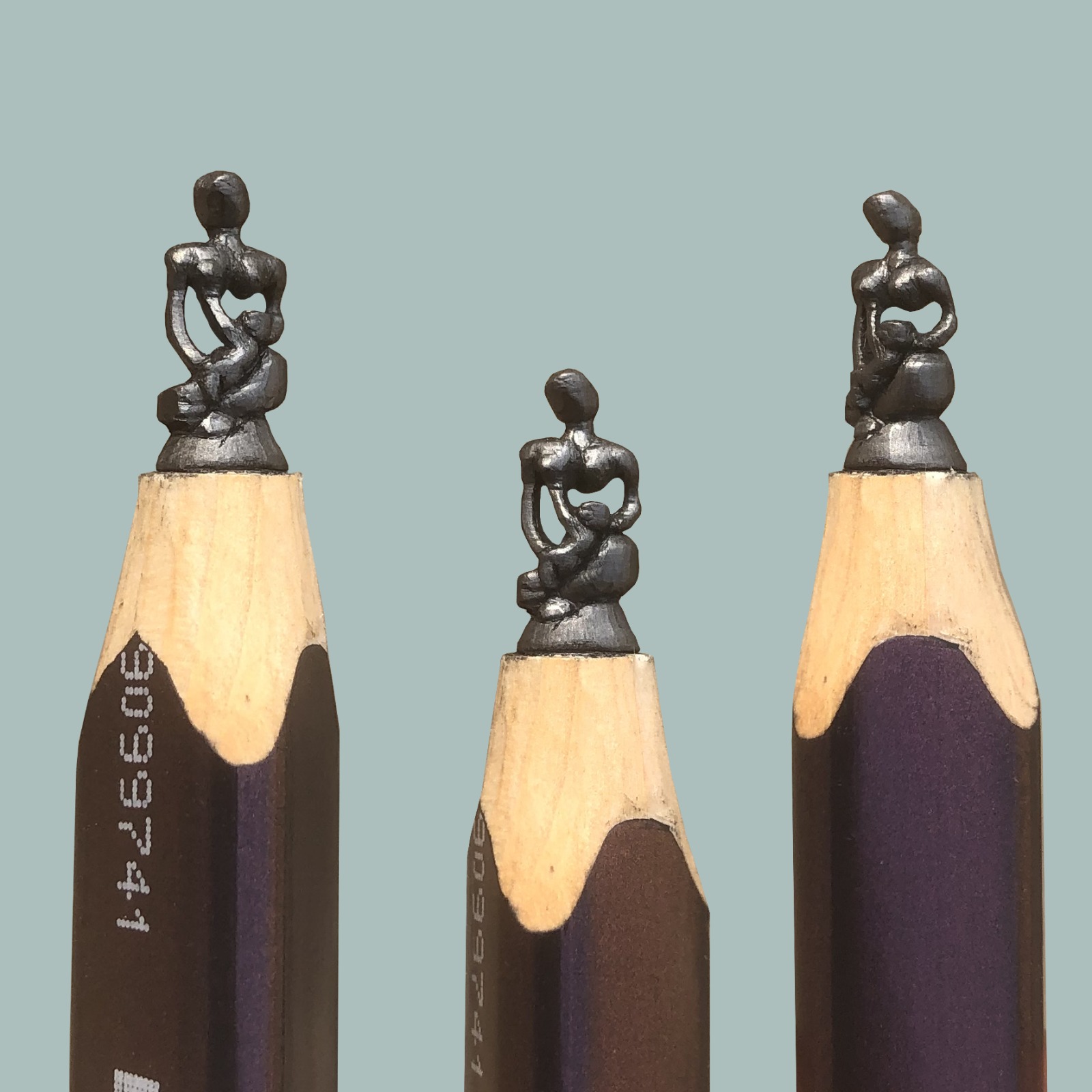By M.C. Blandford
Only for Emergencies
As his heart pounds in his ears, his fingers move slowly against the screen, still learning how to piece words together from the sea of individual letters. i am sorry mama, he types. With his brightness turned way down, he sends his mother this message on his second-hand phone specially given to the third grader at the start of the school year for “emergencies only.”
Earlier that weekend, he’d thrown a fit when his mother told him, wagging a manicured nail in his face, that he wasn’t allowed to wear the sneakers his father bought him on their mall outing to school. He didn’t understand. Those shoes, featuring Spidey with his gang of Amazing Friends that lit up like fireworks when he ran, swiftly became his prized possession. His need to show his class was all-encompassing.
Monday morning comes and he sneaks his shoes into his backpack, hoping his mother won’t notice their absence from the disarrayed shoe rack. He switches into them for gym class, and everyone gawks at how they glow when he steps in exaggerated circles.
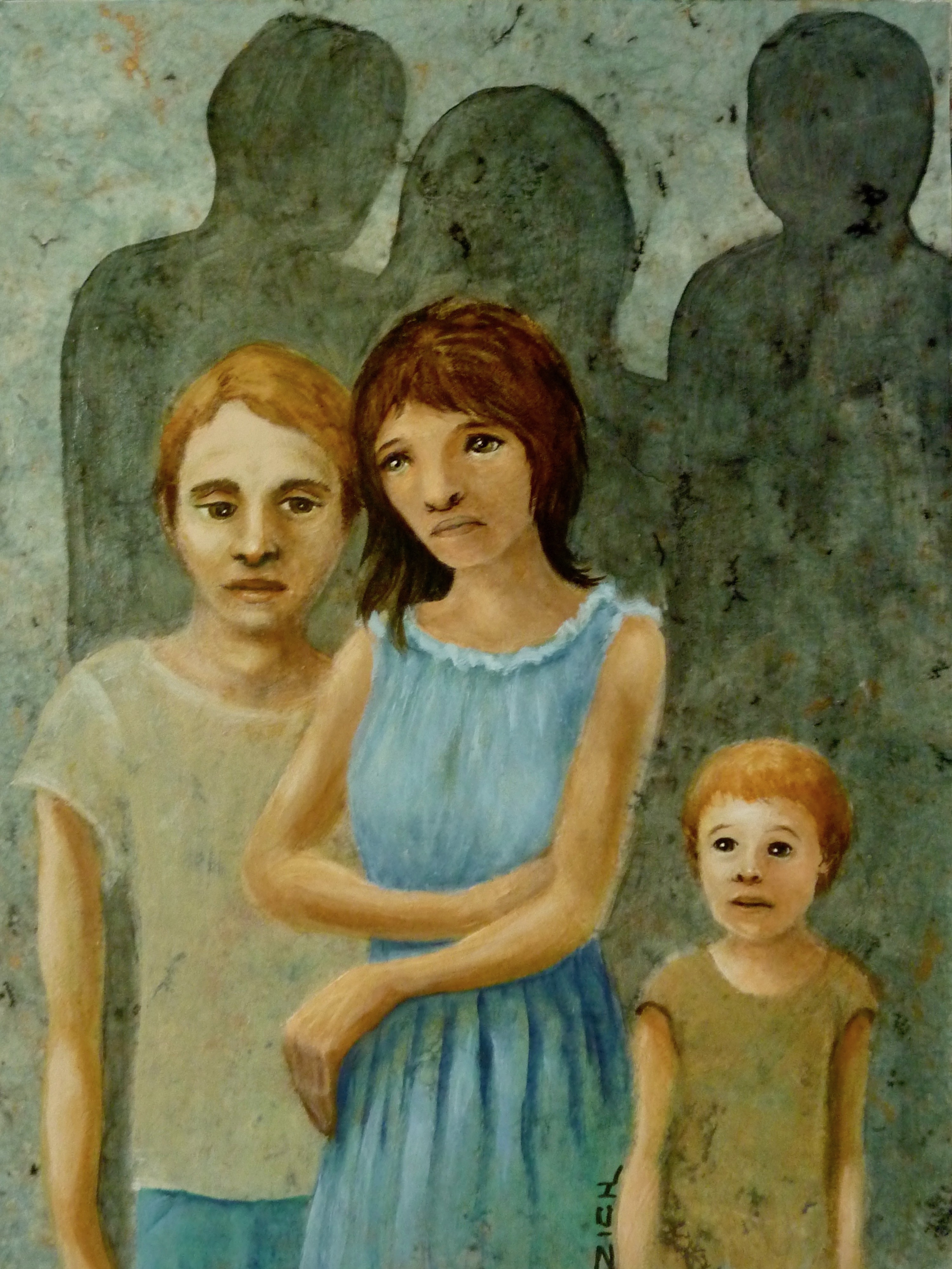
Relentless Shadows Came by Jane Zich
Now, huddled on the floor surrounded by his peers in the constructed darkness of the too-large gym, he understands. Despite his nerves, he wills his shoes to remain firmly on the lacquered floor. Wills the flashing lights to stay asleep as they are told this drill is not a drill and he has targets on his feet.
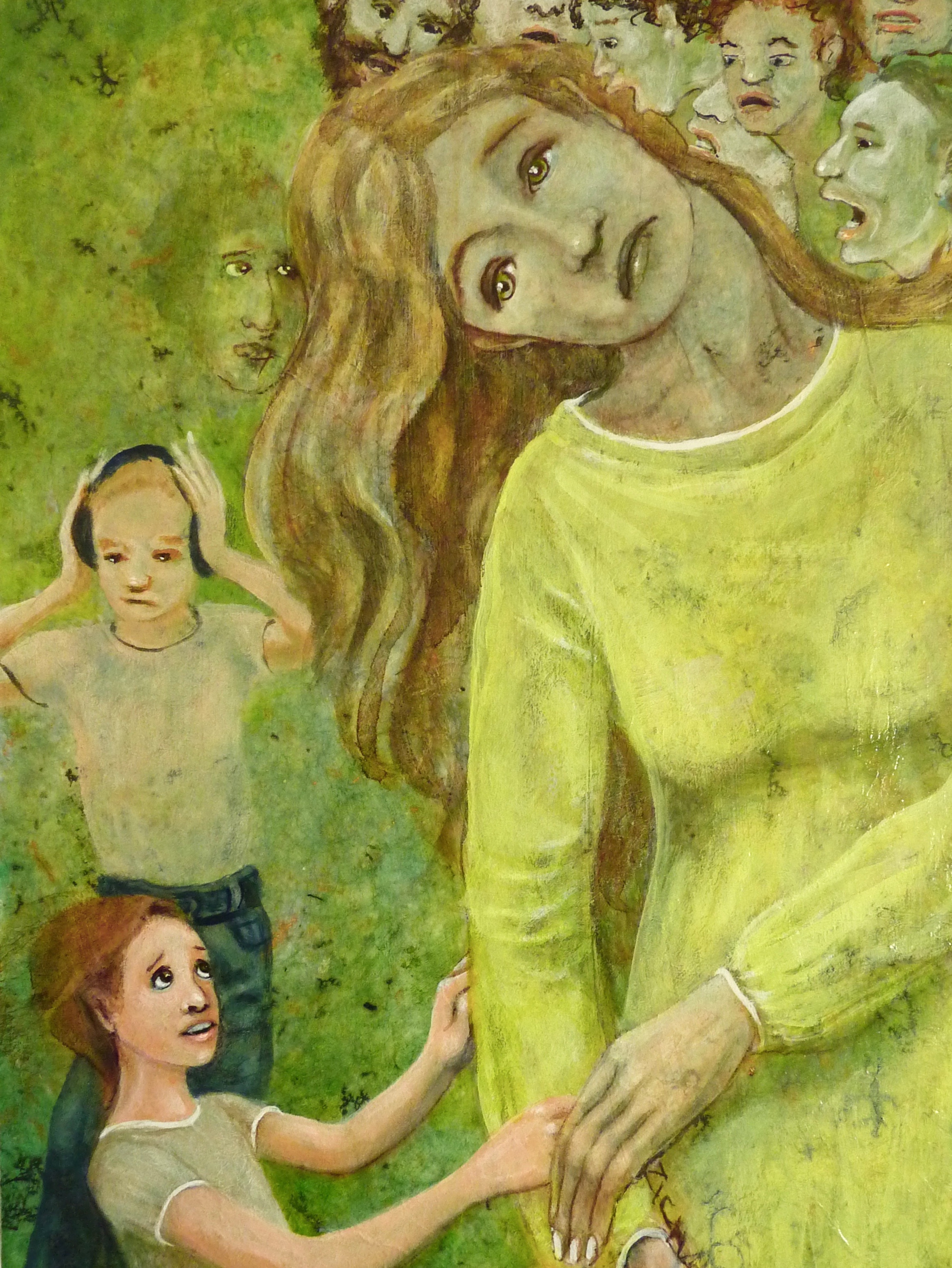
Noise by Jane Zich
What If It’s Arlo?
Miss Pander dares to stick her head through her classroom door—already breaking protocol by neglecting to immediately flip the deadbolt and shut off the light—wishing into existence the student she permitted to use the restroom less than three minutes ago.
“No, no, no, no. Come on!” she mutters to herself.
The PA announced this is not a drill exactly forty-five seconds ago—her neck programmed to crane toward the large clock on the wall whenever the braying call of the PA interrupted her class. The clock ticks the seconds by like a gong signaling their compromised location. Within seconds, teachers are trained to lock the door and have the children in the corner, lights off. She is putting all her charges at risk hoping—praying—one will round the corner as she sticks her head out of the door that used to have a small window in its frame, long since replaced with a safety-wired slot one couldn’t make heads or tails out of.
The other children are already flocked, without needed direction, in their predetermined herd, being stiller than any child should ever have to be.
The escaped whimper at her back compels her retreat. She feels her heart in her hands as she slips the door closed and turns the lock in place. The click of it sliding home creates a fissure in her chest. In here, it is not “no man left behind,” but rather “every man for himself,” even if that “man” is only eight years old.
She swallows her sobs and prays to a God she no longer believes in that Arlo is doing as he was taught back in kindergarten: lock the stall door, stand on the toilet, be silent, and hope the shooter doesn’t enter the bathroom and spot his target through cavernous cracks in the stall doors.
The clock ticks on like a bomb counting down before Miss Pander hears the sound she never truly believed she’d hear. Shots shatter the room’s quiet bubble but still the students do not scream. Ingrained in them, the utmost importance of remaining still, silent, unnoticed.
She needs to be strong. Set an example for her kids, but she can’t stop trembling. She can’t help the wracking of silent sobs. Small hands touch her body from all sides and angles. Opening her eyes, she is met with the innocent round gazes of the young. They pour their immaculate strength into her as she hugs them close.
Silence falls over them again as they wait. Wait for what, they don’t know, never having gotten this far in the drill. The muscles in her arms relax minutely with each resounding tick of the clock until the sound is drowned out once more by an abrupt pounding on the door. Still there are no screams. Their voices are crammed into their throats, drowning in the surrealness of this moment. A moment that was never really supposed to happen. Not to them.
The door thuds again.
Miss Pander grips the kids, trying to shove as many of them behind her crouched body as she can manage, waiting for the inevitable bullets to sing through the flimsy wood.
“Please!” A tiny voice rings out through the crack under the door. “I’m sorry, Miss Pander! I’m so sorry! Please let me in!”
Miss Pander knows that voice. Knows all her students’ small voices. She bolts from the floor and barrels toward the door. Then, she hesitates.
Arlo is sobbing on the other side, pleading for entry. Miss Pander’s fingertips are a breath away from the lock.
What if the shooter has him? Is using him to gain entry? Or, she shudders, what if it’s Arlo? What if he’s the shooter?
There are two options: let Arlo back in the classroom and hope that doesn’t let in the gun or leave an innocent, pleading eight-year-old in the hallway for slaughter.
The training tells her to leave him. The odds tell her to sit back down with the kids she knows are safe. She can’t save them all, but she can save the ones who are all staring at her. She hates the small part of her that wants her kids to decide for her. Her gaze sweeps over them looking for a nod or shake of the head, but they are still, wide-eyed and waiting.
Before she can decide, her hesitation chooses for her. Shots spring to life again and the thudding of Arlo’s tiny fists on the door is replaced by the louder one of his body hitting the floor.
That moment hangs suspended in the air long after the police arrive and the screaming starts then stops again. Long after she sees the body. The parents. The grief. Long after Miss Pander resigns. Long after thoughts and prayers dwindle to crickets, forgotten and replaced by other school tragedies—one after the other. Long after she is told by nobody who matters that she did the right thing. The moment lasts until she decides to rectify her hesitation by pulling the trigger on herself.
The Right to Bare Arms
I didn’t want to do it. At least, I don’t think I did, but I did do it. So, there must have been a time when I thought I wanted to.
They were always so cruel, the students I was supposed to call peers. And it was so easy. My dad’s guns were locked up, but the key was just sitting on his key ring. There were tens of keys on it, but this one stood out: printed on it and worn with use was the proud American flag. My father had a right to bare his arms. Or was it bear? I never did know. Even as I went from primary to middle school, I didn’t know. Always too afraid to ask after he started on about it. Spittle flew from his lips and his cheeks flamed in fury for those “fucking libtard snowflakes” trying to take his “God-given rights.” I had those rights, too, didn’t I? The right to right all the wrongs done to me in these halls. Right?
God this hurts. I didn’t know it was going to hurt so much.
There are voices swimming above me as I lie there. The edges of my vision are blurred, not black, but a kaleidoscope of shimmering rainbow hues. The lights above me are bright.
I only shot one kid. I didn’t mean to. I didn’t know what I was doing. I didn’t check to see if it was loaded. Assumed it wasn’t. They scattered when I pulled it out of my bag. They scattered and screamed and that is what I wanted. I never wanted to hurt anyone, just scare. Just correct.
The trigger compressed so willingly. I didn’t even know my finger was on it, but it fired a round before I realized the consequence was smoking at the end of the barrel.
My hands are sticky. I think it’s blood. My blood.
I didn’t have time to drop the gun. Didn’t have time to think of my actions having repercussions in the form of the limp body in the hallway with me. Didn’t have time to see the school guard—Roger was his name, I think, bushy mustache always high-fiving kids and fist bumping—pull his holstered weapon and fire it along with me.
No. Not with me. At me.
I didn’t feel the bullets tear through my flesh. My body jolted back and landed hard on the concrete floor. The pain started slowly as did the barrage of people I know are surrounding me.
By the time a woman kneels beside me, the pain is becoming excruciating. I don’t know where it begins or where it ends.
“Son,” the woman says, leaning closer. Another someone across from the woman’s voice is touching me now. I can’t place the hands but there is a definitive pressure.
The shining hues are closing in to a pinpoint above me, the light stretching further. I want to catch it. But the pain.
“Son, can you hear me?” The woman speaks louder but the words are muddled, lost in the encompassing light. Why is she yelling?
“We’re going to get you the necessary medical attention, but I need you to understand your rights. You have the right to remain silent,” she begins. More hands begin touching me, but I am getting farther away from the pain now. I didn’t mean to do it. I didn’t want to do it. Or maybe I did because now I can descend into the shimmering edges of the promising light.
“Anything you say can and will be held against you in the court of law…” What is she talking about? I’m not going to the court of law. I am going… away.
About the Author
M.C. Blandford is a historical fiction/horror writer out of NE Ohio who received both her BA (Capital University) and MA (John Carroll University) in Creative Writing. Currently, she works full-time at her regional food bank as the Executive Assistant in Akron, Ohio. Most recently, her writing has been accepted by Owl Canyon Press and Free Spirit.
About the Artist
Jane Zich is a San Francisco Bay Area artist whose award-winning artwork is exhibited nationally and featured on the covers of American Psychologist, Dream Time, Fiction Fix, Jung Journal: Culture & Psyche, and Permafrost Magazine, as well as inside Agave Magazine, Catamaran Literary Reader, Metonym, Midwest Review, Reed Magazine, Santa Clara Review, Saranac Review, Stonecoast Review, Trickster Literary Journal, West Marin Review, and Winter Tangerine Review. Her paintings are based on imagery from the unconscious, which operates as a dynamic image-creating partner contributing surprises throughout her painting process.
